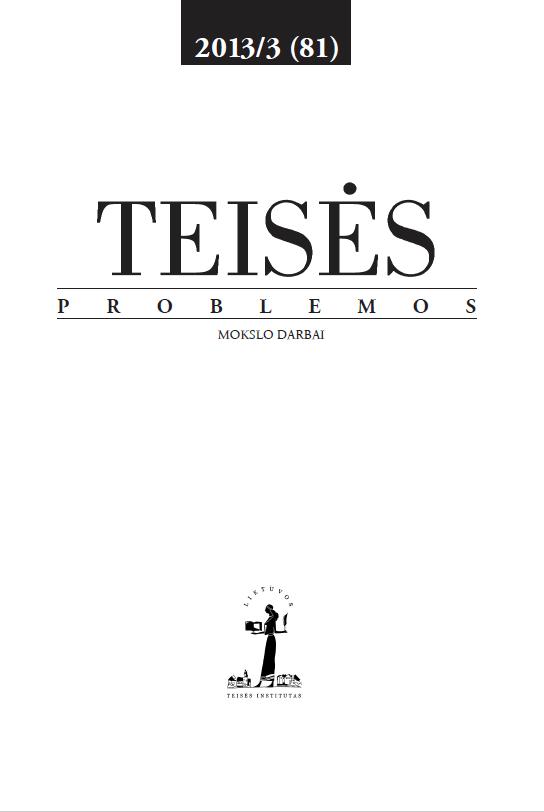Manipuliacijos sporto varžybomis Lietuvoje: tarp kriminalizavimo ir ultima ratio principo
Match-fixing: Between the Criminalization and the Principle of Ultima Ratio
Author(s): Salomėja ZaksaitėSubject(s): Criminal Law
Published by: Lietuvos teisės institutas
Summary/Abstract: This article examines current issues stemming from the criminalization of match-fixing (manipulation of sports competitions). Firstly, the concept of manipulations is investigated, and it is laid out that quite a broad concept implicates different kinds of liability – mainly disciplinary and criminal. Then a question is raised as to what forms of manipulations are dangerous enough to be criminalized, why (in theoretical sense) and when (in practical sense) disciplinary liability does not suffice. In Lithuanian scientific doctrine, an act is considered to be criminalized when, inter alia, it conforms to the criteria of dangerousness. Therefore, it is analyzed when and why match-fixing is dangerous enough to be criminalized. The main justifications for dangerousness are as follows: match-fixing causes certain harm and betting operators might suffer certain damages (then we have the corpus delicti of fraud with specific characteristics relating to the moment of crime completion); match-fixing undermines the integrity of sports; also, match-fixing sometimes might be not only the form of corruption, but also the form of transnational organized crime. However, one must be cautious while interpreting the above-mentioned theoretical grounds of dangerousness. The threat of “undermining the integrity of sport” is primarily associated with the sports law and, accordingly, with disciplinary liability. The threat to the integrity of sport always causes some (not necessarily material) harm, yet not always great harm. Thus, one must be cautious: if “harm” is understood too broadly or applied too vaguely, then the criminalization of match-fixing can become a selective measure for overly discretionary punishment. For example, the criterion of “abuse of the game” is not sufficient per se to attract criminal liability. In turn, the principle of ultima ratio might be potentially violated. While answering a practical question under what conditions disciplinary liability is not enough for match-fixing, it is stipulated that: 1) disciplinary institutions might be not able to ascertain and prove the fact of match-fixing without the help of the police (the so-called procedural limitations of disciplinary liability); disciplinary law and its application might be relatively narrow, covering only sport’s community (the so-called subjective limitations of disciplinary liability); disciplinary law is not always punitive enough. For the sake of objectivity, it must be noted that the last argument tends to lose its meaning as current disciplinary sanctions (especially imposed by international sport federations) could be severe and, therefore, it raises the question of pseudo-criminal law with high sanctions and relatively low standards of proving.
Journal: Teisės problemos
- Issue Year: 2013
- Issue No: 81 (3)
- Page Range: 56-75
- Page Count: 20
- Language: Lithuanian

